Saints of Georgia
Menu Links
Contact Us
3101 Waters Ave
Savannah, GA 31404
Originally compiled by the Right Reverend Henry I. Louttit, 9th Bishop of Georgia
First edition, June 1998, Revised: June 1999, January 2004
Deaconess Byllesby added by Bishop Scott Anson Benhase April 2012
Note: Two calendar days in Lesser Feasts and Fasts are of particular importance in the history of the Diocese of Georgia. They are the Feast of John and Charles Wesley, and the Feast of Thomas Bray. Both of those tend to fall in Lent, not a good time for a major celebration in the parish.
I would like to suggest that the following days might be celebrated on a regular basis in your parish at a mid-week service, if you already have one scheduled. You may, therefore, observe the feast on the given day if you wish, or you may move it to any day in the week in which the feast falls when you already have the people gathered.
- Sir Thomas Bray – April 22nd
- Deaconess Ruth Byllesby – April 25th
- John and Charles Wesley- May 13th transferred
- Anson Dodge – June 18th
- Albert Rhett Stuart – July 8th
- Brother Jimmy Lawrence – September 3rd
- Deaconess Alexander – September 24th
- Bartholomew Zouberbuhler – October 22
- Bland Tucker – November 19th
If I were trying to encourage people to have some sense of the Communion of Saints, I would suggest using these dates plus a selection chosen from those in the Prayer Book calendar, so that perhaps twice a month you had a Eucharist focused around a special person, followed by a meal. For instance, you might observe April 25th, the Feast of St. Mark, not only as St. Mark’s Day but remembering all the evangelists.
Celebrate the Feast of the Ascension, May 21st (or its eve). Celebrate the Nativity of St. John the Baptist on June 24th, on which you could observe not only John but also all the Old Testament forbearers of the faith. In July, it seems right to do a major celebration in thanksgiving for our country in relationship to July 4th. In August, it’s the Feast of St. Mary. September, you could choose either Holy Cross Day or the Feast of St. Michael and All Angels. In October, the Feast of St. Francis seems widely observed. November, of course, you have the Feast of All Saints, which the Prayer Book expects to be observed on its day as well as on the following Sunday. Naturally, one would want to adapt this list to the interest in the local community, certainly including the feast of the title or patron saint.
Few parishes are going to be able to use all the entries in the Prayer Book calendar and the propers for Lesser Feasts and Fasts. On the other hand, for people almost to have no sense of the glorious company of saints from all ages and peoples, and with a great diversity of gifts, is to impoverish them. I believe most communities could work towards at least one celebration a month on a festal day. This would normally mean a meal, but it can be a very simple meal of soup and sandwiches. This is also an opportunity if you have younger people in the congregation to involve them in doing or taking part in liturgy in a way that is particularly age appropriate.
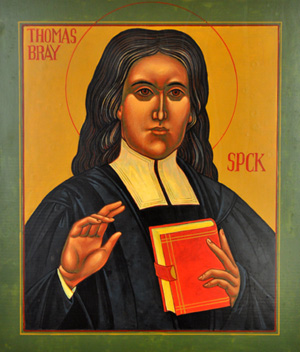
SIR THOMAS BRAY
(Propers: Lesser Feasts and Fasts)
Book of Common Prayer, February 15th (Lent is not a good time for parish observance)
Diocese of Georgia Calendar, April 22, or closest weekday service
Sir Thomas Bray is in our Prayer Book calendar because he was the most imaginative developer of support in England for the struggling congregations of Anglicans in the British Colonies.
For most of his life, he was rector of St. Botolph-Without-the-Walls, in London. The Bishop of London, who was responsible for the colonies, sent him to Maryland as his commissary (ambassador or representative). In his two-and-a-half month tour, Thomas Bray encouraged priests and lay folk alike, but he saw the terrible shortage of pastors and books—Bibles and Prayer Books. On his return to England, he founded the SPG, the Society for the Proclamation of the Gospel, to provide priests with stipends for churches in the colonies. The SPG provided clergy for Christ Church, Savannah, and St. Paul’s, Augusta. The society also provided a great Jewish convert, Joseph Ottolenghe, as a catechist to work with African slaves. He then founded the Society for the Propagation of Christian Knowledge (SPCK), to provide books. The SPCK is still the largest producer of theological books in the English language, though they are not sold in the United States. Today, there is a branch of the SPCK in the U.S. that works to provide Christian books in Lakota and Spanish, and provides books for seminary libraries throughout the world.
More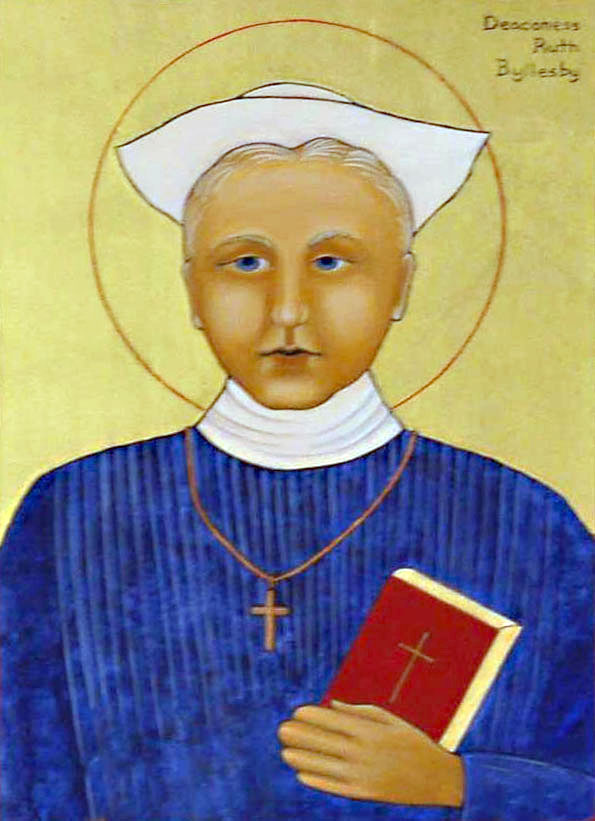
DEACONESS RUTH BYLLESBY
Diocese of Georgia Calendar, week of July 8th
Served Christ Church from 1927 to 1943
Collect: Almighty God, who chose your servant Ruth Ellis Byllesby to serve the poor, feed the hungry, and clothe your children: give us the grace to pattern our lives after the shining example of Blessed Ruth, that we may spread the Gospel by helping those in need, with humility and the heart of a servant, through Jesus Christ our Lord, who lives and reigns with you and the Holy Spirit, one God, for ever and ever. Amen.
Epistle: Phillippians 2:1-7 (8-10)
Psalm: 112
Gospel: Matthew 25:31-46
Ruth Ellis Byllesby was born 9 March 1865 in Meadville, PA where her father, Marison Byllesby, was the rector of Christ Episcopal Church. She graduated from Meadville high school and then studied at Brooke Hall in Media, PA. From 1894-96 she studied at the Philadelphia Deaconess Training School She was set apart November 17, 1896 at Trinity Church in Pittsburgh by Bishop Whitehead, and began a ministry serving working class women and children in Pittsburgh. In 1904 she moved to Morristown, New Jersey, where she served as a parish deaconess for several years. From 1913-1922 she served as a parish deaconess in Detroit.
More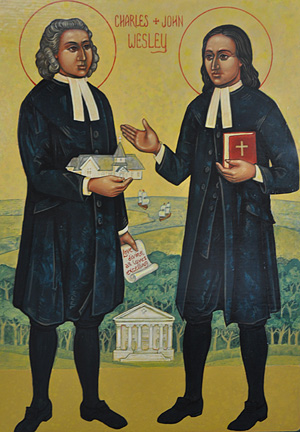
John and Charles Wesley
(Propers: Lesser Feasts and Fasts)
BCP Calendar, March 3rd (Lent is not a good time for parish observance)
Diocese of Georgia Calendar, week of May 13th
John’s father was a priest in Epworth, Lincolnshire, England. At Oxford, John, as an undergraduate, became convinced the Book of Common Prayer contained the discipline necessary to nurture a Christian into holiness. He gathered other students around him and they followed directions of the Prayer Book about daily Morning and Evening Prayer, fasting on Fridays, and making their communion weekly. John’s group was derisively called “Methodist” because they were so methodical following the rules or method of the Book of Common Prayer. John read theology at university and was ordained in the Church of England.
Seeking a position from which he could preach to non-Christians, he obtained appointment by the Society For the Proclamation of the Gospel to be a priest in the Colony of Georgia. He intended to be a missionary to Native Americans, but when he arrived in Savannah there was no priest or English-speaking pastor in the colony. Thus, the people of Savannah (and the SPG?) saw him as the rector of Christ Church. In Savannah, he preached in German to the Salzburgers, befriended the Jewish community, regularly led worship in German, Italian, and French for various groups of settlers, and worked hard to build up the parish church. At Christ Church on Sunday, he expected everybody to be present three times, following the design of the Book of Common Prayer. He scheduled Morning Prayer at 5 a.m., Ante-Communion (or, when the people would agree, Communion) and the Litany at 11 a.m., and Evening Prayer and the Catechism at 3 p.m.
More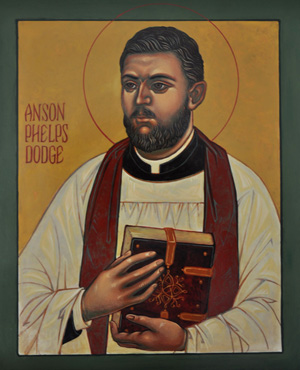
The Rev. Anson G.P. Dodge, Jr.
(Propers: For a Missionary II, LFF)
Diocese of Georgia Calendar, week of June 17th
The outline of Anson Dodge’s life is well portrayed in Eugenia Price’s historical novel, The Beloved Invader.
The young son of a wealthy New York City family, he was sent south after the civil war to see the condition of the family’s timber property on St. Simons Island. He was so horrified by the Union Army’s treatment of the building of Christ Church, St. Simons, that on his return to New York he entered General Theological Seminary from whence he returned to spend his life pastoring and rebuilding Christ Church, Frederica, as a religious community, in addition to rebuilding its building.
What is not so clear from the novel is his energy in riding out from St. Simons preaching to all he could gather, regardless of race, and forming them into congregations. His foundations clearly stand out in the old list of the Diocese of Georgia, because he was deeply affected by the Latin and Greek fathers of the early Church, (the first 4 centuries).
More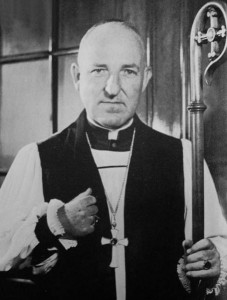
Albert Rhett Stuart
(Propers: For the Unity of the Church, Book of Occasional Services)
Diocese of Georgia Calendar, week of July 8th
After a distinguished ministry as a priest, as rector of the Church of the Resurrection Greenwood, South Carolina, as rector of St. Michael’s, Charleston, then as dean of Christ Church Cathedral in New Orleans, Father Albert Rhett Stuart was elected the sixth bishop of Georgia. He came to Georgia concerned about building a church gathered around God’s altar that lived its sacramental heritage from the Book of Common Prayer. He, for many, was an icon of Christ’s presence. He attracted young priests as he moved towards having a priest for every congregation. However, another issue arose before the whole church out of the Gospel, which involved the inclusion of all people in God’s church. In the early years of the twentieth century, Georgia, by law, had strictly separated black and white folk. Despite protests, the church had followed suit. For the first 110 years of the Church here in Georgia, most congregations had communicants of both races. In 1947, under the leadership of Dr. Bland Tucker of Christ Church, Savannah, African-American congregations had once again been given representation in the diocesan convention, their presence there having been suspended in 1907. Housing and meals were complicated for the convention in a legally segregated state, but now the issue of reintegration of congregations went before the church and society. I remember a very large man in cope and miter leaning against the outside of the pulpit of the small church that seated 40 people in Statesboro, Georgia, and saying, “This is a free country.
More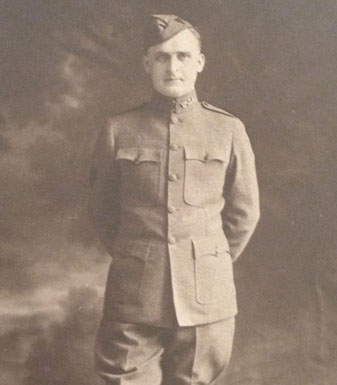
Brother Jimmy Lawrence
(Propers: For a Pastor I, LFF)
Diocese of Georgia Calendar, week of September 3rd
Doctor Lawrence came to be rector of Calvary, Americus, in 1904. He was a bachelor who had many connections in New York City. He immediately set about sharing the Gospel anywhere people would listen. He would get on the train, and go to the next stop, get off and gather people to hear the Gospel. He was a friend and image of God’s love to many who were or became active in other churches. But besides seeing significant growth in the membership at Calvary in Americus, he founded churches in Pennington (the log chapel is now in a historical reconstruction of a village at the gates to Andersonville), in Vienna (Prince of Peace Episcopal Church’s building is now a civic concert hall and auditorium standing next to the school), in Cordele (Christ Church), and in Blakely (Holy Trinity where oaks he planted have grown to an impressive size and now shade the lawn). He started congregations in Cuthbert, Dawson, and Benevolence. He served for 47 years as rector of Calvary and archdeacon for missions in the west of our diocese! Upon his retirement, he intended to be vicar of his beloved St. James’, Pennington, but God called him into his heavenly kingdom.
His kindness and concern for people are still a living memory for Sumter County.
Pray for people to offer themselves to the ordained ministry of priests to serve as pastors in our congregations.
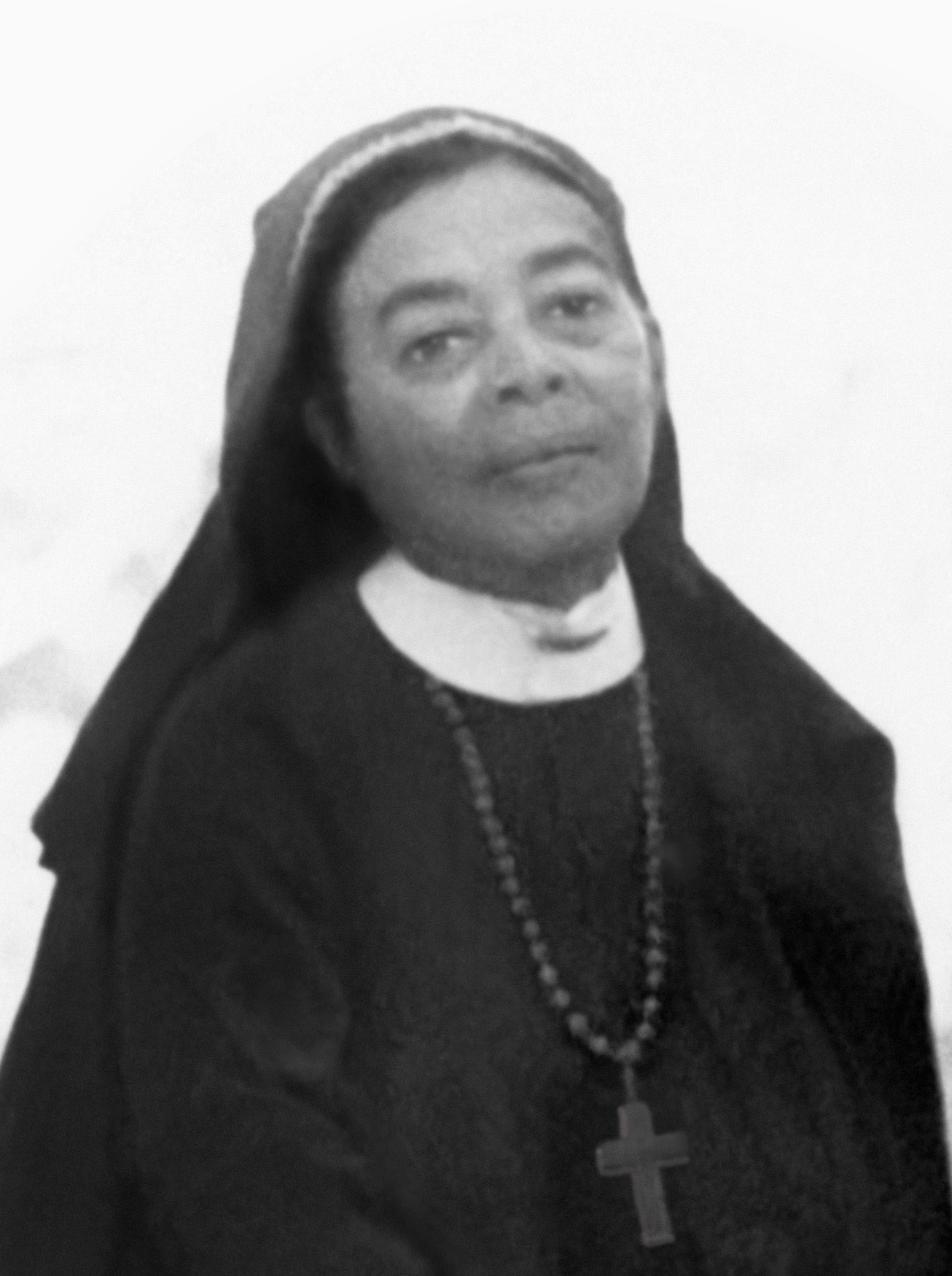
Deaconess Anna E.B. Alexander
(Click here for the propers for her feast)
Diocese of Georgia Calendar, week of Sept. 24th
Born circa 1865, Deaconess Alexander was the first African-American set aside as a deacon in the Episcopal Church in 1907. She founded Good Shepherd Church in rural Glynn County’s Pennick community where she taught children to read – by tradition, from the Book of Common Prayer and the Bible—in a one-room schoolhouse. The school was later expanded to two rooms with a loft where Anna lived. She ministered in Pennick for 53 years, leaving a legacy of love and devotion still felt in Glynn County. Her love and concern for all children helped make summer camps possible for young white members of the diocese. To honor her, these youngsters built a cabin at the old diocesan camp center, Camp Reese. Deaconess Alexander served in difficult times, however. The diocese segregated her congregations in 1907 and African-American congregations were not invited to another diocesan convention until 1947. Similarly, it was only in the 1950s that a woman set aside as a deaconess was recognized as being in deacon’s orders. However, her witness – wearing the distinctive dress of a deaconess, traveling by foot from Brunswick through Darien to Pennick, showing care and love for all whom she met—represents the best in Christian witness.
Pray for those who are faithful in small things with small groups and through their love embody Christ for many. Pray for women and men to be raised up to continue Christ’s mission and outreach in Georgia.
In 1998, the Diocese of Georgia began the process for her Episcopal Church to honor Deaconess Alexander’s holiness of life. In 2018, the General Convention recognized St. Anna’s feast day, September 24. During its 2023 Convention, the Diocese of Georgia unanimously voted to name Deaconess Alexander as the Patron Saint of the Diocese.
Much more information, including a short documentary film, is at: https://goodshepherdschoolhouse.org/
Bartholomew Zouberbuhler
(Propers: For a Pastor II, LFF)
(d. in 1776, buried in Bonaventure Cemetery in Savannah)
Diocese of Georgia Calendar, week of October 22nd
Mr. Zouberbuhler was appointed on November 1st, (All Saints’ Day), 1745, by the SPG, to be pastor of Christ Church, Savannah. Ordained by the Bishop of London, Bartholomew was the son of a native Swiss pastor who had originally served congregations of Swiss Protestants in the colony of South Carolina and then had become pastor of an Anglican parish there. Bartholomew, believing himself called to the ministry, made the long trip across the ocean to be ordained by the Bishop of London.
The trustees of the Colony of Georgia, charged pastor Zouberbuhler to minister to the French and German inhabitants of Georgia in their own languages according to the ceremonies of the Prayer Book! In 1748, of the 613 inhabitants of Savannah, 225 were members of Christ Church and 388 were dissenters of all sorts (Presbyterians, Congregationalists, Lutheran, etc.) Of the 225 members, only 63 made their communions. In 1750, Christ Church moved, under pastor Zouberbuhler, into its first building. It had met in the courthouse until then. The Rev. Bartholomew Zouberbuhler recorded in his journal that many Negroes decently joined in our services.
More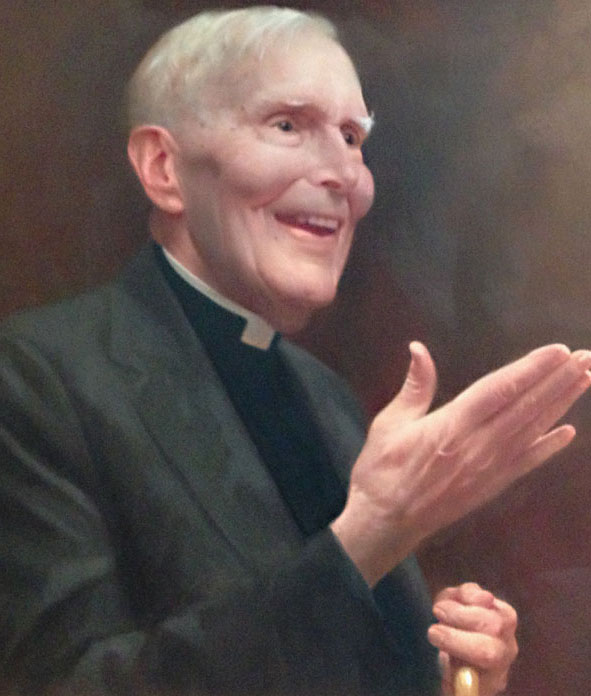
Dr. F. Bland Tucker
(Propers: For the Ministry II, OS)
Diocese of Georgia Calendar, week of November 13th
Dr. Tucker came from a distinguished family of servants to the Episcopal Church in Virginia. His oldest brother was a great Presiding Bishop of our Church, having served as a missionary in Japan. Dr. Tucker was the eleventh child. He was a great servant of Christ here in Georgia as rector of Christ Church, our mother congregation, in the very difficult time of integration. It was he who led our 1947 convention to once again admit African-American congregations as full participants.
Dr. Tucker was a gentleman whose demeanor glowed with Christ’s compassion. Not only was he a great pastor to anyone in need but a hymn writer who has blessed the whole English-speaking world. In The Hymnal 1982, only two eighteenth century hymn writers—Charles Wesley (who served us also as a priest in Georgia), and Isaac Watts, (a Congregationalist)—have more hymns.
